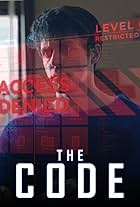While Microsoft may be the biggest software company in the world, not every computer user is a fan of their products, or their way of doing business. While Microsoft's Windows became the mos... Read allWhile Microsoft may be the biggest software company in the world, not every computer user is a fan of their products, or their way of doing business. While Microsoft's Windows became the most widely used operating system for personal computers in the world, many experts took issu... Read allWhile Microsoft may be the biggest software company in the world, not every computer user is a fan of their products, or their way of doing business. While Microsoft's Windows became the most widely used operating system for personal computers in the world, many experts took issue with Microsoft's strict policies regarding licensing, ownership, distribution, and alter... Read all
- Narrator
- (voice)
- Director
- Writer
- All cast & crew
- Production, box office & more at IMDbPro
Featured reviews
Fast forward thirteen years to 2014, it's easy to reflect back on this film and see it was a product of its time. This documentary is an interesting look into the world of the Open Source movement and the people behind it but nothing more.
Revolution OS spends most of its time speaking on the open source community and chiding proprietary software giant, Microsoft. A popular narrative in 2004. It's very much an idealist view on the computing world built on Richard Stallman's rhetoric. A brilliant man who was unable to adapt to changing times, a relic of the hippie generation.
Apple had yet to make a comeback with its Switch campaign, the iMac and iPod - during this time it was primarily Linux vs. Microsoft for people such as myself. I couldn't build software from scratch but I was able to fix problems. For me? There was no doubt Microsoft was the winner in this area and as much as I enjoy this movie, it fails in addressing the open source community problems.
Have they produced some great software? Apache is mentioned and it's great for running a server, even on Windows. But what they fail to speak of is the hardware manufacturer's lack of support for Linux in the early 2000's. I can't build software, I certainly can't build hardware. So you'd find 20 page hacks just to get your sound to work. Now if you're in the business of wanting to provide software support for people, which is a big part of this community, that's great. Someone will pay you to fix the problem and you're the geek to do it but why not just make it work to begin with? Paid support is an unfeasible business model for the average user - it's flipping expensive.
They make a big point of paid support in the open source community which it has but so does Windows. There's thousands of companies in direct contact with Microsoft to help alleviate any problems your company may encounter.
Tinkering with the various operating systems was and is fun but at some point you either continue that progress of "hacking" the software or you get tired and want it to work. With the exception of Windows ME, Microsoft had a fairly good track record of a stable operating system filled with support from hardware manufacturers. With proprietary software, you DO have choices. If Voodoo begins to fail at its job in providing a decent video card, you switch to Nvidia and then ATI... there's also a plethora of software choices from free, open source to paid. Support can be free, sometimes it's not. We are really in a different era by now.
The film also delves a bit into the Mozilla project and the problem it had with Internet Explorer. Today? After years of development and hundreds and thousands of changes the browser of choice for geeks, FireFox, began to lose out to Google Chrome. Why? It was faster. FireFox had become set in a quagmire of relying on plug-ins and they forgot to shore up the primary software itself. It had a huge ram issue when Chrome was released. A sleek and faster browser.
In today's world, you have APIs and SDKs that allow you certain licensing rights that allow you to tap into the system you're building software for. The Linux vs. Microsoft is almost a dead narrative by now. The majority of people have moved on from the desktop to the tablets and mobile phones. They really don't care about proprietary vs. open source - the average user does not care. Period. They want it to be easy and work. It's hard to imagine the desktop dying off for web developers like myself - what could possibly take its place in the heavy computing and production world?
It's not a tablet or cell phone but it's something and it'll probably spawn its own documentary when it arrives.
So, you will derive from this film software has started "open source" and when companies started to button it up the people just moved on to other forms of creating and maintaining open systems.
The film is fun in its self as it lets those there were in the movement see themselves in retrospect and those that missed the boat to catch up. Too bad it cut short being 2002 to miss the inroads of Linux and Fedora both as a replacement and coexistent in the information technology world of today.
The value of this movie are the interviews with the key persons of the various open source and free software movements, though it becomes quite tiresome to sit and wait for the goodies. What really brings the credibility down is the overly hostile reading of the letter by Bill Gates and the traditional Microsoft bashing through the entire production, combined with the heroic soundtrack during the interviews of the "good guys". It gives the over all impression of really being a sales pitch for a church from a bunch of overly enthusiastic believers, though without the visionary parts that can make it a document of its context of production.
In conclusion, even though far between, there are some good bits in this documentary that could make it worth watching if you have a special interest in the open source movement. Just be aware that you might also get some chills of embarrassment in between.
Of course, since 2000, Linux has made great strides into the server market, the desktop market (even Walmart sells computers with Linux now), and the embedded market. Cell phones, Palm PDAs, cameras, camcorders, cars, networking, Tivo, cable boxes, etc. all run by Linux now (or soon will, according to announcements from manufacturers).
The days when you needed to learn a dozen different operating systems are gone. Learn Linux and you know how everything works. The best part is that if you don't like the way something works, you can change it. That, and it's free! Make copies for all your friends, legally. Tens of thousands of high-quality free software products (office suites, graphics packages, video processing, everything imaginable). Tech support is provided by tens of thousands of volunteers.
It's hard to understand how this change from paying for software to free software happened; for many people not involved in the process, it's still news to them.
If you want to know how this all happened, Revolution OS will give you the background you need to understand the way the software business works now, and in the future.
Storyline
Did you know
- TriviaUnusual for documentaries at the time, this was shot entirely on 35 mm film, and mostly with anamorphic lenses.
- Quotes
[when awarded the Linus Torvalds Award]
Richard M. Stallman: So, very ironic things have happened, but nothing to match this. Giving the Linus Torvalds Award to the Free Software Foundation is sort of like giving the Han Solo Award to the rebel fleet.
- ConnectionsReferences Star Wars: Episode IV - A New Hope (1977)
- SoundtracksThe Free Software Song
Lyrics by Richard Stallman
Performed by The GNU/Stallmans
- How long is Revolution OS?Powered by Alexa
Details
- Release date
- Country of origin
- Official site
- Languages
- Also known as
- Революционная ОС
- Filming locations
- Production company
- See more company credits at IMDbPro
Box office
- Gross US & Canada
- $3,500
- Opening weekend US & Canada
- $3,500
- Aug 25, 2002
- Gross worldwide
- $3,500
Contribute to this page


















